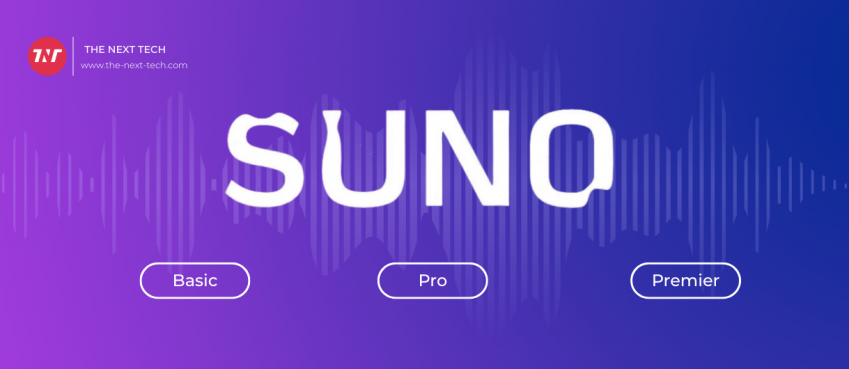
You’re likely to have come across both managed cloud and dedicated servers if you’re looking into hosting options through a cloud service provider. It can be difficult to choose the right hosting option for your website, business, or project.
Beyond the price, there are many other differences among these hosting options. This article will explain how they differ and which one is best suited for your needs.
What is a Virtual Private Server(VPS)?
A virtual private server (also known as a VPS) is a virtual machine controlled by the purchaser but managed by a cloud service provider.
A VPS is typically used to host a website or game server. The software and system settings of the virtual private server are controlled by the end user. The providing service maintains the VPS’s hardware and takes care of its maintenance.
A virtual private server can be described as a portion of the server hardware in a data center. A single computer can host a few virtual private servers.
Each VPS comes with its own bandwidth limitations and memory usage limits. These are usually determined by how much the end user is willing to pay.
Each VPS machine is partitioned so that they can’t affect one another or pose security risk. Each virtual machine that runs on the physical server may be running under completely different protocols and operating systems.
Also read: Top 6 Tips to Stay Focused on Your Financial Goals
Benefits of a Virtual Private Server
VPS hosting is a popular choice for many people because of the low cost. VPS hosting can be as low as $6 per month, while dedicated servers can run up to ten times as much. There are usually a few price points for VPSs that can be purchased depending on what your project requires.
A VPS with a minimum price is usually limited to one core and a few gigabytes of RAM. Bandwidth restrictions are another difference between these price points. Websites that have a lot of traffic will need more bandwidth than VPS base prices.
Hosting on your own hardware is likely to put a lot of strain on your computer and internet connection. It’s easy to move your hosting project to a VPS and increase the server’s performance. A VPS’s stability is significantly better, so you don’t need to worry about outages and downtimes.
A VPS eliminates the need for the user to maintain any hardware. VPS’s security and operational controls aren’t as flexible as dedicated servers, which can be a disadvantage. Users can upgrade or downgrade their VPS at different prices to meet changing system requirements.
Also read: [10 New] Alternatives For T Bar Row Exercises To Build Lats (With Pictures)
What is the best time to buy a virtual private server?
A VPS is the best choice if you’re working on a small web hosting project or creating a simple gaming server to share with a few friends. VPSes are often used for more mundane tasks. A VPS is a good choice if you don’t know how much computing power you will need to host. As soon as your virtual machine requires more computing power, you can scale up.
What is a dedicated server?
A dedicated server is a physical computer that is exclusively used by a single customer or business. Like hardware that plays host to virtual private servers, Dedicated server hardware is stored in a temperature-controlled data center, with both physical and virtual security measures in place to protect the hosting user’s data.
Dedicated servers often use state-of-the-art software with high-end AMD or Intel processors and significantly more RAM than you would find in a personal computer. A dedicated server is able to provide all of the physical resources for one user. This makes it significantly more powerful than a VPS.
Also read: 100 Best TV Shows & Movies On Tubi To Stream Without Paying Credit
Benefits of a dedicated server
A dedicated server is capable of carrying heavier workloads than VPSs and can support the deployment of high-resilience infrastructure as well as Kubernetes containers. It’s an easier and more flexible hosting option. The end-user can also customize the server in many ways that are not possible with a VPS.
The end-user can have direct remote control of the operating system and hardware parts for their machine in many cases.
A dedicated server and a VPS are both highly secure and protect against data leaks, hacks, DDOS attacks, and other malicious activities. The dedicated server, however, has an IP address that can be assigned to any location.
This is important for handling sensitive data such as SSL processing and purchases. A dedicated server is essential for eCommerce websites and other online businesses. It allows you to customize your website and makes it easier to succeed in the digital retail environment.
What are the best times to use a dedicated server?
VPS hosting options may not be sufficient for your hosting project. A dedicated server is required for more complex workloads such as infrastructure virtualization or server clusters.
Although dedicated servers can be purchased at different price points, they are not as flexible as VPSs in terms of scaling up. For the most critical and complex workloads, dedicated servers can cost up to a thousand dollars per monthly.
Also read: 50 Apps Like TikTok - Top TikTok Alternatives For Viral Content
Conclusion
How to Choose Between a VPS Server and Dedicated Server
A dedicated server and a VPS offer distinct features that go beyond their price differences. While dedicated servers offer superior performance and customization options, VPS hosting is much more affordable and easier to scale if your hosting requirements change.
You don’t have to decide which hosting plan is best for you. Instead, reach out to cloud hosting providers to find out what they recommend for your website, project, or business.
Top 10 News
-
01
[10 BEST] AI Influencer Generator Apps Trending Right Now
Monday March 17, 2025
-
02
The 10 Best Companies Providing Electric Fencing For Busines...
Tuesday March 11, 2025
-
03
Top 10 Social Security Fairness Act Benefits In 2025
Wednesday March 5, 2025
-
04
Top 10 AI Infrastructure Companies In The World
Tuesday February 11, 2025
-
05
What Are Top 10 Blood Thinners To Minimize Heart Disease?
Wednesday January 22, 2025
-
06
10 Top-Rated AI Hugging Video Generator (Turn Images Into Ki...
Monday December 23, 2024
-
07
10 Top-Rated Face Swap AI Tools (Swap Photo & Video Ins...
Friday December 20, 2024
-
08
10 Exciting iPhone 16 Features You Can Try Right Now
Tuesday November 19, 2024
-
09
10 Best Anatomy Apps For Physiologist Beginners
Tuesday November 12, 2024
-
10
Top 10 Websites And Apps Like Thumbtack
Tuesday November 5, 2024







